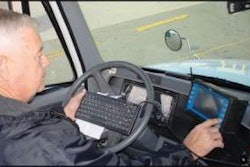I’ve watched with great interest over the past few years as state governments have passed legislation to ban motorists from texting while driving. As more states declared it illegal, I began to wonder when other states, including my home state of Alabama, would enact similar – and obviously necessary – legislation.
On Wednesday, May 9, Alabama finally issued its own comprehensive ban, becoming the 38th state to do so. Currently, seven states have no statute on the books to outlaw this inherently unsafe practice – Florida, South Carolina, Hawaii, Arizona, Ohio, South Dakota and Montana. Five others – Mississippi, Texas, Oklahoma, New Mexico and Missouri – only have bans for new drivers and learner’s permit holders. (Here’s a good site outlining various state cellphone and texting laws.)
In the five years since Washington became the first state to outlaw the practice in 2007, we’ve seen President Obama ban the practice for employees driving federal vehicles in 2009, and in 2010 the Federal Motor Carrier Safety Administration followed with a regulation banning texting while driving for all commercial motor vehicle operators.
What will it take to get the remaining states to get on board, a federal regulation? With all the statistics on the dangers of distracted driving, five years is far too long (tsk, tsk, Alabama and other late-comers) to just now be implementing bans.
Naysayers of texting bans will argue that drivers will continue to text while driving, regardless of state and federal laws. It’s an inherently difficult law for police officers and state troopers to enforce, and too often, the penalties aren’t severe. In Alabama’s case, the penalties ($25, $50 and $75 for first, second and third offenses) probably won’t do much to deter the practice.
While these are valid arguments, any deterrent to texting while driving is a worthy endeavor. If nothing else, it provides another opportunity for parents to have discussions with their children about the dangers of distracted driving. And just perhaps it could prevent more accidents, such as this one captured on the dash-cam of a state trooper (WARNING:video below contains graphic/disturbing content), from ever happening in the first place.










